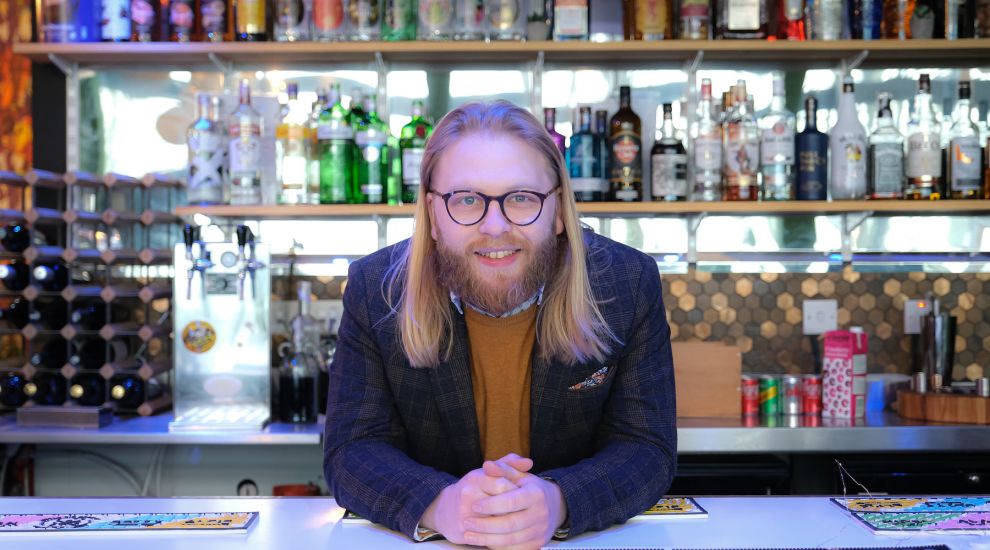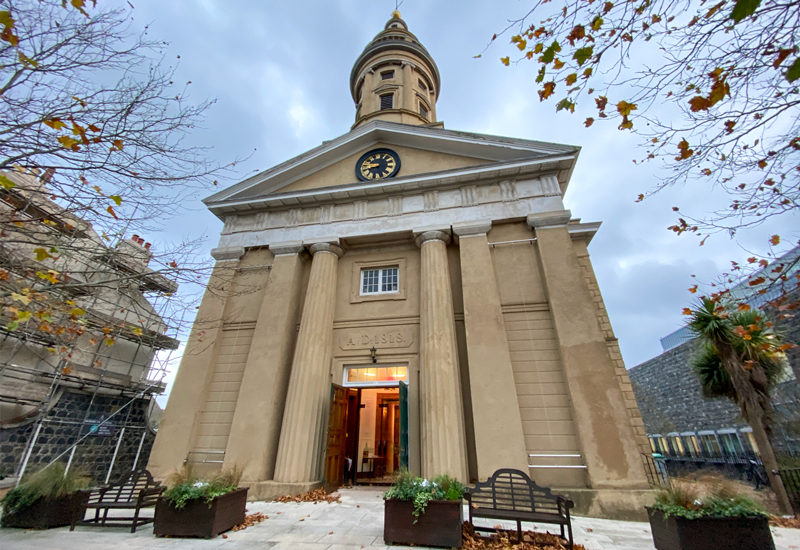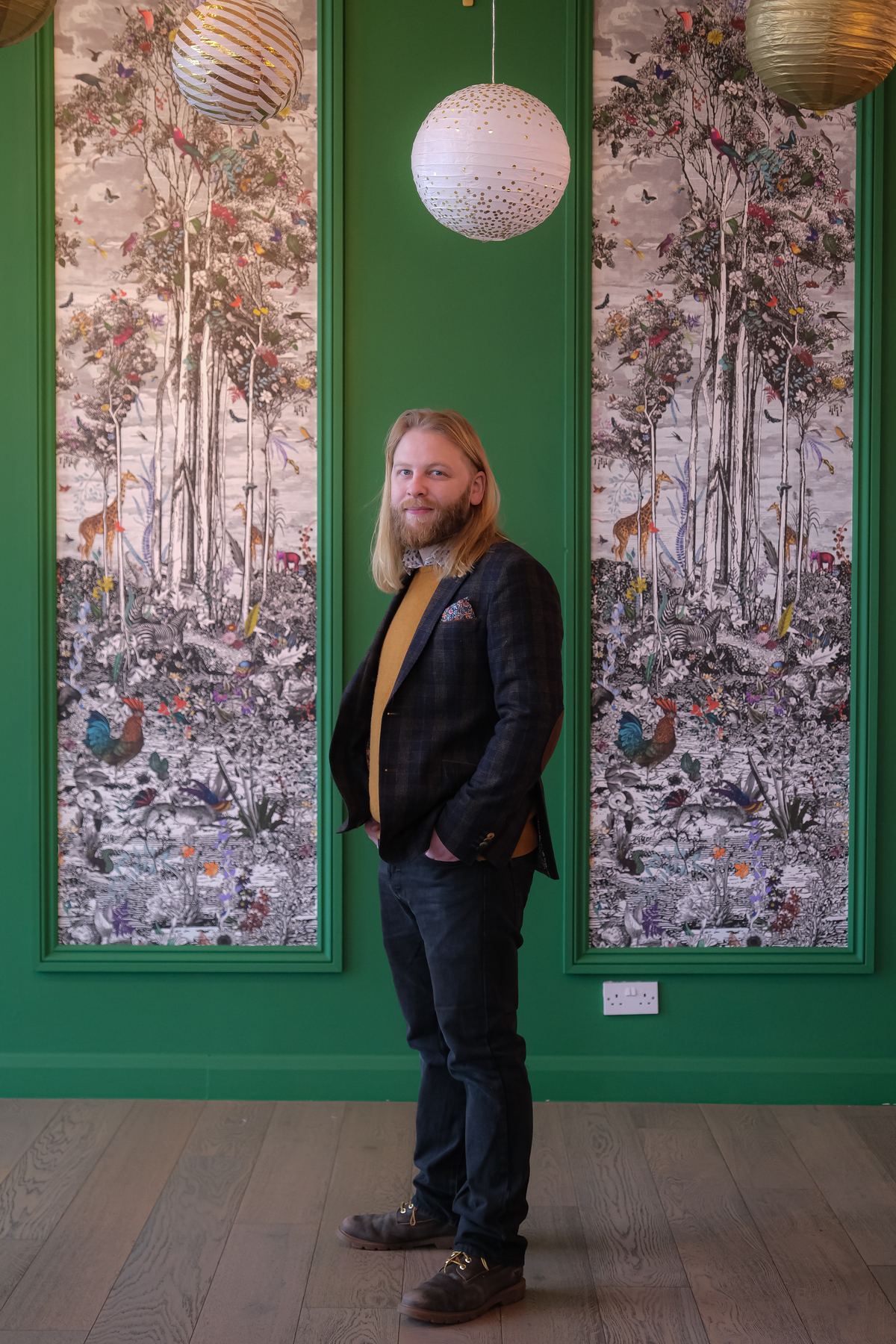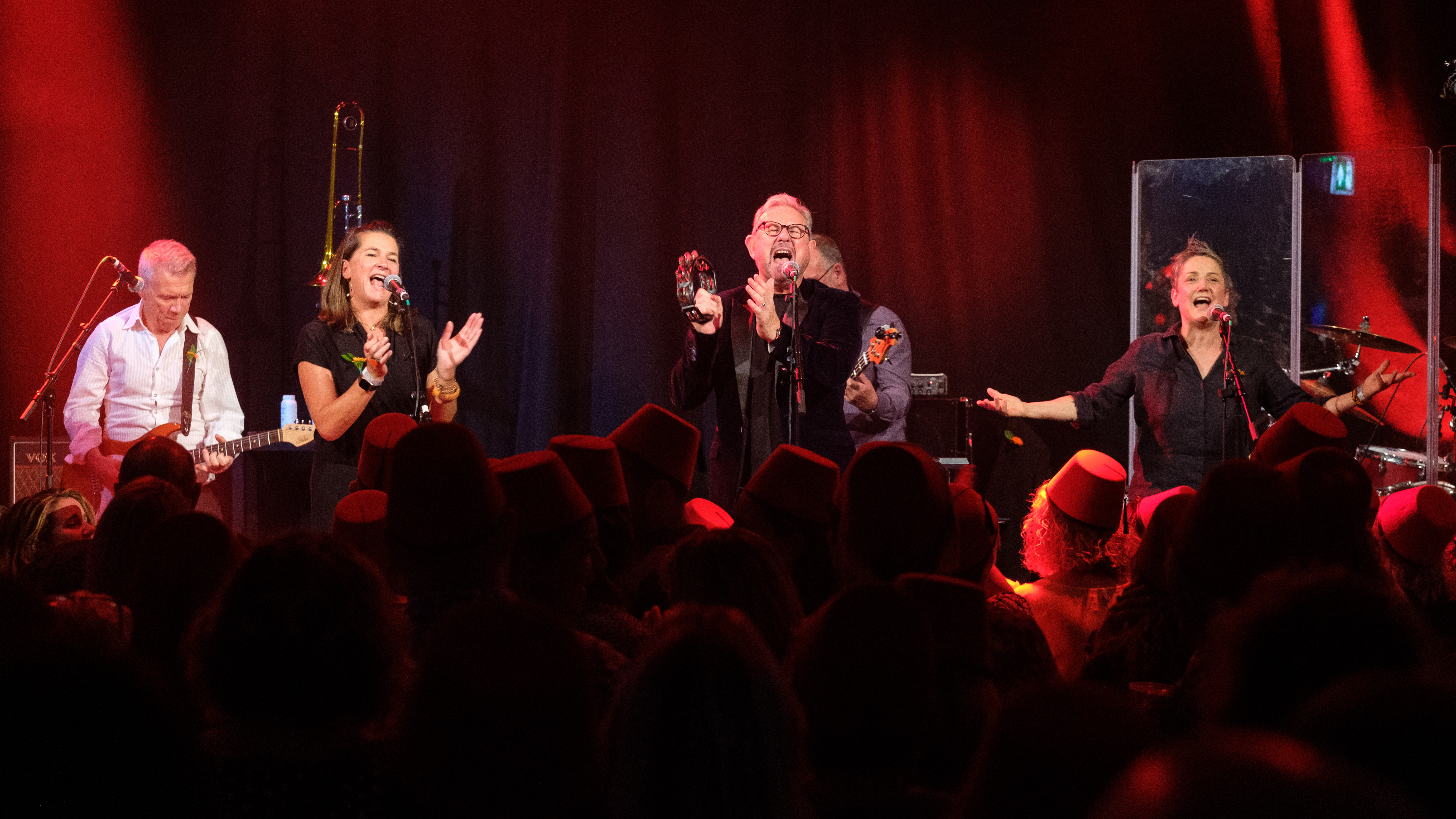


When the doors open at St. James and the crowd starts rolling in, the vast majority of the work has been done.
That is the time when St. James deputy director Gregory Harrison (pictured above) can take a breath, just as everyone else is getting going.
It was four years ago that he first got involved in the project to reinvigorate a venue that is so firmly part of Guernsey’s culture and identity.
The team at St. James have refreshed the programme as much as they have the fabric of the building, providing a platform for music, comedy, corporate events, even tattoo and bike shows - all aimed at growing the audience going through its doors.
Gregory speaks with passion about the arts ecosystem and the opportunities it provides not just for those performing, but for sound and lighting engineers, set designers, producers, writers, directors, photographers.
St. James is firmly part of that. It can be a springboard for careers.

Gregory was brought onboard by St. James director Jon Bisson - they had worked together previously on some Guernsey Gigs projects.
At the time he was working various odd jobs and touring as a musician.
“He knew that I had a set of skills that he was after, maintenance and stuff like that from my previous work as a joiner and a cabinet maker, and that I also understood staging and events from running events since I was about 15.
“So I knew the world, I could do multiple things, and he offered me the opportunity to have one job rather than multiple jobs, and still be able to have the benefits of touring with the band.
“I started on a zero hours contract to help out and work on this project and then as I got more and more involved over the first few months, I realised quite quickly that the project was really fun and really interesting.”
When they started out they knew it was important to bring in a new audience to St. James, expanding on what was being done.
“There's always something really enjoyable about working on a specific thing, having a vision and developing that. In some jobs you don't necessarily have that.
“When it started I'd see things that would annoy me in setups or things for theatres that just weren't efficient. It's solving problems a lot of the time. There's something really enjoyable about that. Solving those problems was a big part of getting more involved and obsessed with it. And then gradually, it was all more and more about putting on better shows and the capability of doing that.”
Things had to change at St. James to secure its future.
“Entertainment’s difficult at the best of times and hospitality has been difficult and it's been even more tested in the last few years. So you have to push on and come up with new ideas. We did a lot of redecorating and revisualising the spaces, asking ‘how do you make them more functional?’ We’ve got a very small team, so a real key part of making it functional is making it really easy to switch over from different events and provide a nice service for people and provide a service for the island.”
They are keen to push the envelope.
“You come up with something crazy and mellow it down, but there's no bad idea. I think you've always got to have that a little bit, to keep it creative and keep things going.”

Pictured: Gregory Harrison. Credit: Paul Chambers.
So much of the work that happens at St. James goes unseen.
“I always say that, for me, the event finishes at about seven o'clock when the doors open - and then I'm thinking about the event the day after.”
St. James is increasingly being recognised as a venue by agents and artists from outside of these shores, but it has taken time.
“They have big concert halls in the UK where it’s a lot easier to book, artists know the venue and want to play there. It’s a lot of research going to see bands, taking recommendations from friends.
‘Then there’s flights to book, security to book, making sure you’ve got transfers for artists. Each event has to have a budget, you’ve got to try and figure out what the market is. There’s going to be a smaller audience for some very nice free jazz than there is for bigger bands like Republica, Toploader or the comedians we’ve had. That and the artists’ fees will determine ticket prices. But the biggest hurdle we have is actually getting people over, sometimes it’s three times the fee just to get travel and accommodation.”
After the booking has been made, Gregory will get involved in the promotion.
“Does the artist sell it in their own right? Or do we need to theme something around them? Is it like an 80s night? How do you add to that to make it special?”
There is ongoing contact with those booked to play St. James, with one eye on the weather in case travel needs to be rearranged.
The weeks prior to a show can be a dream if ticket sales have gone well.
“You know you've got a sell out show and everything's smooth. All you’ve got to think about is, ‘do we have enough staff to run this? Is there enough beer, and is the beer cold?’ All those boxes need ticking and that's it. But then if it's not selling, it's really trying to get it out there and telling people about it and trying to get word of mouth out.”
St. James has different layouts depending on the show.
It may be the team is getting ready to be a fully seated concert hall, or instead fitting bars in the hall, maybe decorating the space.
“Lighting engineers have to come in and programme all the lights ready for each individual show. Bands have to soundcheck, orchestras have to rehearse. Everyone has to get the sound levels right.”
The turnaround time can be tight if there is a show the night before.
“You can easily start the day at eight, nine o'clock in the morning and finish it at one or two o'clock and be back again at eight o'clock in the morning ready to switch over for another thing. You can't just push it back, come five, six or seven o'clock, whenever the doors open, 500 people are turning up, so it's got to be done no matter what.”
An event needs staff on the door checking tickets, security in place, people behind the bar, someone looking after the artist.
“We've got a great team that does all of that as well. Generally for most of the show, if we're not looking after the customers, we’re just trying to think, ‘how do we make it better for next time?’”
After the doors close the venue needs cleaning up, there could be a need to check that a band has got back to the hotel and then on to their flights.
“We get two breaks, one in the summer and one at Christmas. We can have up to four or five events a week.”
The variety of events means it is a job that never gets boring.
It could be a corporate seminar one day, an Unplugged Club in the cafe the next night, a piano recital and then a big community event in the main hall.
“It's not just like working in any other venue because it's such an iconic building within Guernsey,” said Gregory.
“There's so many people who have so many memories, from getting married here to performing as students, to growing up and performing in orchestras, to people who have fundraised to build the building. That's a real thing to consider all the time and it's a real personal attachment.”

Pictured: King Rat and the Soul Cats performing at St. James. Credit: Paul Marriess.
Gregory’s background made him a perfect fit for St. James.
He began playing classical violin as a five year old, gradually turning to the world of rock and roll, writing and playing with friends in bands from 12 after he had moved to Dinan from the UK.
Bands can struggle to find shows to play.
“I've always thought that if no one's doing it for you, then you might as well just get on and do it yourself.”
He left school as he turned 16 to do a joinery apprenticeship.
“I did that mainly thinking that I’d get a good day job that allows me to have my weekends to perform shows, I'll only be doing it for four or five years, and then I'll be famous, so it won't really matter after that.”
He was only 16 when he organised his first three day event in Dinan, using the joinery workshop to build the staging. He could not drive at the time, so would carry amplifiers back and forth from his parents’ house, taking all day to get things set up over multiple journeys.
It was all part of the fun, he said, and that independent spirit to performing continued.
He moved around France, keeping the music going alongside the joinery, then on to the UK and eventually to Guernsey.
Gregory carried on playing on the touring circuit in France. He had his solo project and worked with The Recks.
“The entertainment industry is a bit of a weird one, you've got to kind of fake it till you make it a little bit in certain regards. So there was a lot of pretending that I was an agent and a manager and everything else as an artist, but they're all skills that you pick up really quickly. So you're dealing with agents all the time, you're dealing with venues, you're organising and you're booking events constantly. You're doing all the work and it's just learning on the job.”
With such a small team at St. James, having that variety of skills is vital.
It is easy to forget that St. James is a charity, only getting a small grant from the States.
They have to raise money to maintain the building and put on the shows.
“I've got an amazing team who put in a huge amount of work and a lot of their spare time to do some really cool stuff, but equally, some really demanding and long hours to keep the building going. It's a difficult industry, you can have some great wins, but that can be followed by some big losses and it's really felt in the office.”
A building of the size and capacity of St. James would simply not be found in areas with a similar sized population to Guernsey in the UK.
“It's working and we're gradually getting the word out, people are starting to catch on that there's things that they might want to attend,” said Gregory.
“It's a big project to make it a habit that going out and watching live music or going out to events is just what Guernsey people do. That's where we want people to end up. We have an incredible scene over here of original music. I don't think people understand how precious that is, how amazing that is on the island, because it's not like that everywhere else. There's something for everybody. The more things we can sell, the more things we can put on. And the more people turn up, the more I think they get to love the building. And the more they get to love the arts.”
This interview was first published in the current edition of CONNECT magazine, Express' sister publication.
The online version of CONNECT magazine can be read HERE.
Comments
Comments on this story express the views of the commentator only, not Bailiwick Publishing. We are unable to guarantee the accuracy of any of those comments.